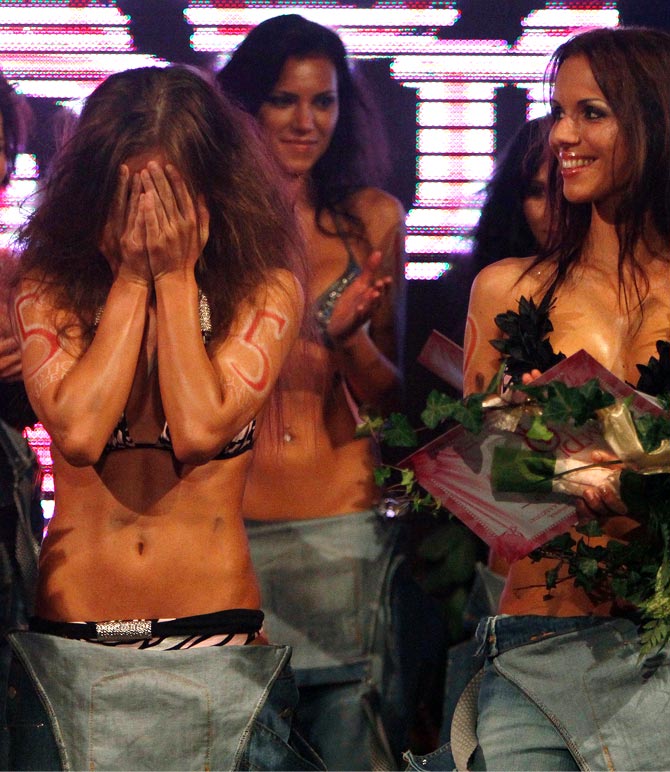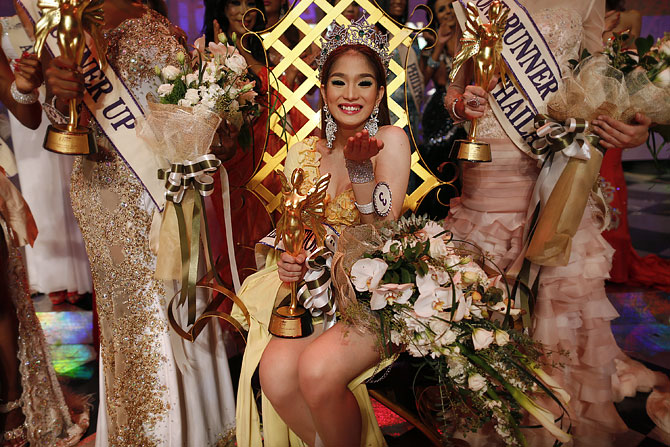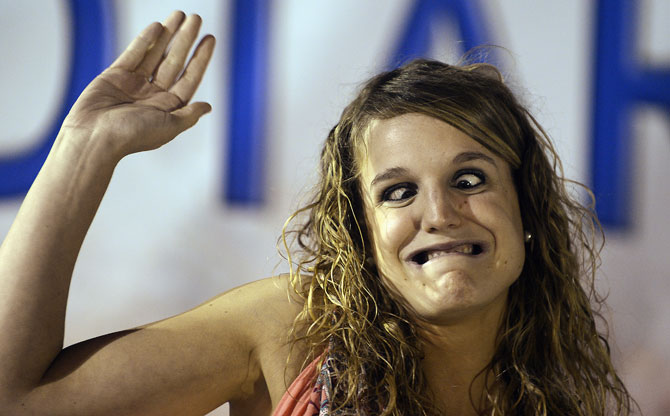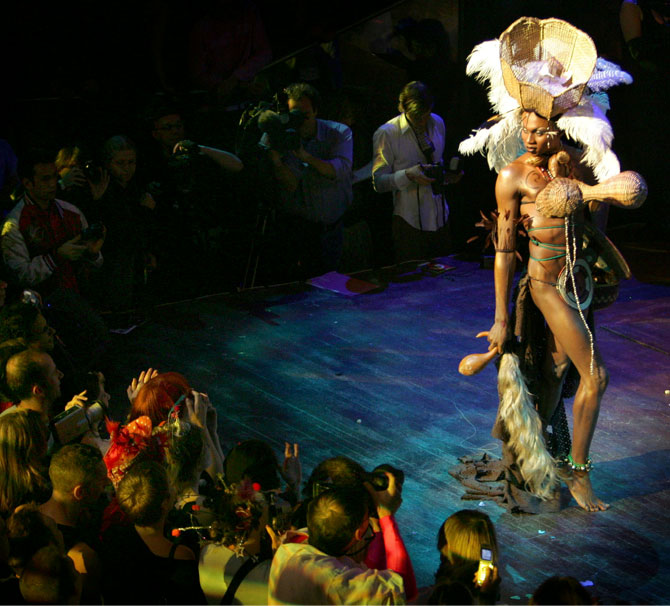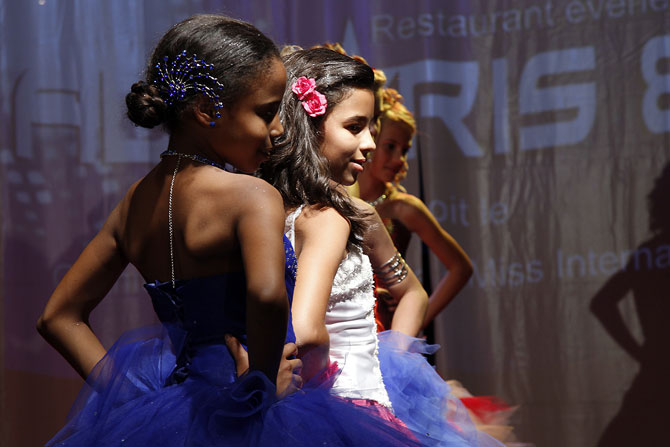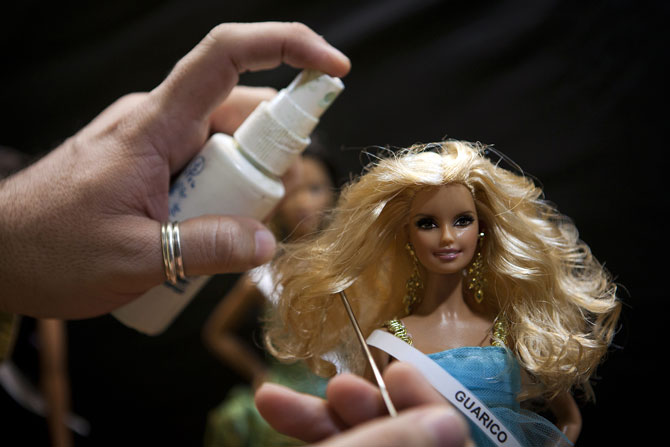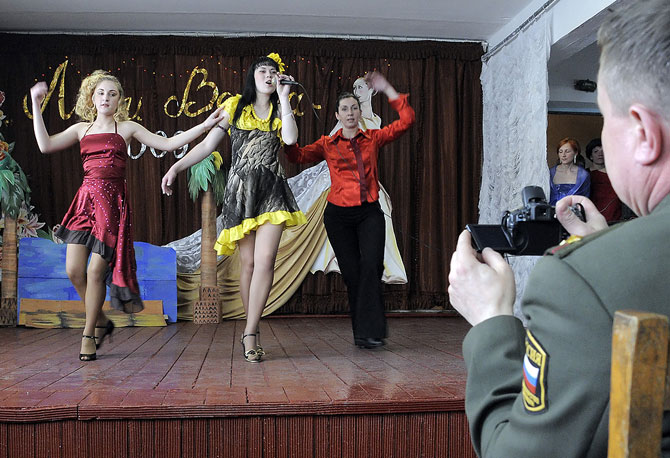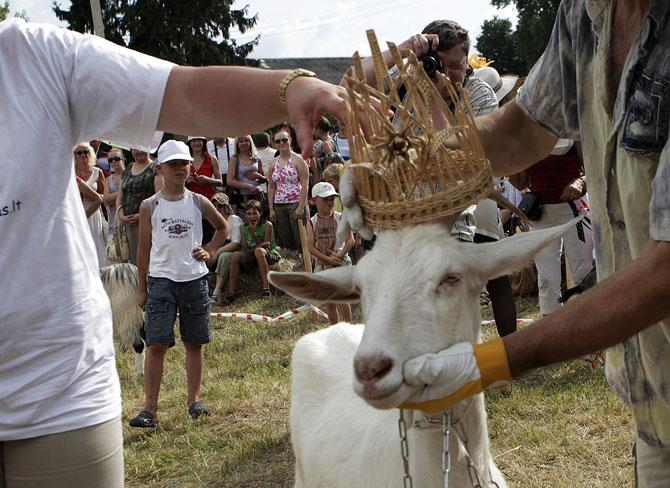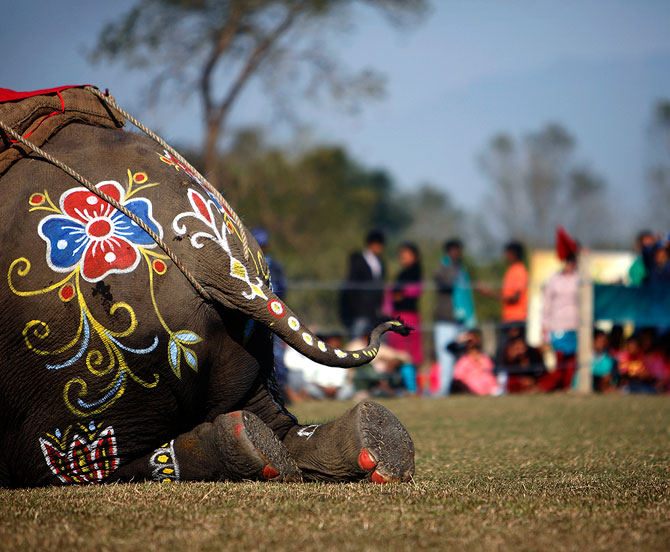 | « Back to article | Print this article |
PHOTOS: The most unusual pageants in the world!
From pageants where contestants flaunt cosmetic enhancements to contests for plus-sized models and Barbie dolls, these pageants are pushing the envelope of what is acceptable. Are these contests exploitative? Or are they just plain quirky? We leave you to decide.
It is the season of beauty competitions. We recently saw Nina Davuluri, a young model of Indian origin being crowned Miss America and Miss World is upon us very soon. So it seems as apt a time as any other to look at some of the more unusual pageants that encourage and celebrate everything that isn't the mainstream.
The Miss World Muslimah that was launched as a protest against Miss World three years ago is one such contest which judges women not just on their beauty but also on their piety and their knowledge of the Quran. (More about the contest here!)
We start out with Miss Plastic Hungary, a pageant open only for women who've undergone some sort of cosmetic surgery.
Anything counts -- a breast implant, nose job or a facelift -- as long as the contestants could produce medical records to prove it.
The winner of the 2009 Miss Plastic Hungary, Reka Urban won an apartment in Budapest while the first runner-up Edina Kulcsar drove home a new car and second runner-up Alexandra Horvath got to take home diamond jewellery worth 2 million Hungarian forints.
It wasn't just the contestants who were the winners, however. Even the doctors who performed surgery on the participants also won awards.
Seen here is a contestant posing on stage during the second Miss Plastic Hungary beauty pageant in Budapest that was held on November 26, 2010.
Miss International Queen
Held in November each year, Miss International Queen is a competition for transgender and transsexual individuals from around the world.
The pageant, held in Pattaya, Thailand hopes to 'provide an opportunity for transgender/transsexual to be more accepted in today's world' and 'build friendship and exchange ideas among international lesbian, gay, bisexual and transgender/transsexual communities'.
Miss International Queen also makes a donation to Thailand's Red Cross Society from its proceeds and hopes to support Tourism in Thailand.
Last year 21 contestants from 15 countries, all of them born male, competed in this week-long event for the crown.
Seen here is Kevin Balot, a contestant from the Philippines, after being crowned winner at the Miss International Queen 2012 transgender/transsexual beauty pageant in Pattaya on November 2, 2012.
Concurso de Feos or The ugly competition
The Spanish city of Bilbao celebrates the Aste Nagusia or the Big Week (though technically it is a nine-day festival) each year. Fireworks, bullfights, food stands and concerts mark the annual festival whose primary highlights is the Concurso de Feos or 'the ugly competition'.
In this strange show, participants are encouraged to contort their faces into as ugly a grimace as possible.
The competition has in some ways become symbolic of the sense of humour and joie de vivre of the Spanish, who are facing one of their worst economic crisis.
Seen here is a participant in the Concurso de Feos (or the Ugly Competition), organised by the Txosna Moskotarrak during the Aste Nagusia (Great Week) fiestas in Bilbao August 23, 2012.
The nine-day festivity, which was first celebrated in 1978, is organised between the Txosnas (independent groups of friends in charge of bars and concerts) and Bilbao City Hall, and features live music, bullfights and fireworks.
Alternative Miss World
Started in 1972 by the English artist Andrew Logan, the Alternative Miss World is 'not about beauty'.
According to the pageant's website, the contest is about 'transformation' and 'when it comes to costume absolutely anything goes'.
The idea is to give creative free reign to the contestants but refuse to let anyone rehearse.
Alternative Miss World has been running for the last 40 plus years and culminates with Logan's 'Crown Jewels made of broken mirrors', the pageant's website reads.
Seen here is a contestant photographed on stage during the Alternative Miss World at The Hippodrome, London, in October 2004.
The contest allows entrants of any gender, nationality or age: the current winner prior to 2004 being an 80 year old Russian woman. The organisers state entrants are 'neither male nor female'.
The Mini-Miss pageants
Children's beauty pageants have been held around the world for decades now. The Little Miss America pageant began in the '60s in New Jersey but was restricted to teenagers from 13 to 17 years of age.
According to Wikipedia the child beauty pageant industry brings in about twenty billion dollars a year in the US alone. The latest edition of the Mini Miss UK pageant will be held in October 2013.
Similar pageants have been banned in France after the senate voted against it recently to protect young girls from being sexualised. The law forbids anyone under the age of 16 to enter into a beauty pageant and awards a punishment of up to two years in prison and fines of up to 30,000 euros to those who enter under-aged girls in pageants.
Seen here are contestants from the 'mini-miss' beauty contest in Bobigny, Paris suburb, in September, 2012.
Miss Barbie
If you thought beauty pageants endorse the Barbie syndrome, this one will blow your mind. Each year, Barbie fanatics give their iconic doll signature looks -- complete with a customised hairstyle, shows and accessories as well as dresses and swimsuits in a Miss Barbie pageant.
Seen here is a contestant combing his Barbie doll who has been named Shantal Martinez Gruber before entering the doll in the Miss Barbie Venezuela beauty pageant.
Contestants adorn their dolls, who have their own names, body measurements and even invented professions, with make-up and the latest fashions in the hope of winning the Miss Barbie Venezuela title and progressing through to the Miss Barbie Universe contest.
Miss Jumbo Queen Contest
First held in May 1997 Thailand's Miss Jumbo Queen Contest was meant to promote a lady who, according to its website, 'exhibits the characteristics of the majestic pachyderm to persuade people to support the cause of elephant conservation in Thailand'.
In any case, the pageant is open to all women (married or otherwise) who are a minimum of 80kg and aged between 18 and 35 years of age and have 'a pleasant personality and good inter-personal skills.
Seen here are Thai contestants dancing during the Miss Jumbo Queen competition at an elephant ground and zoo in Nakhon Pathom, south of Bangkok in May 2001.
Prison beauty pageants
The practice of women's prisons hosting beauty pageants isn't entirely uncommon in countries like Russia, Brazil, Angola and the Philippines. Supposedly the idea is to put the inmates' time to better use.
Pictured here is the Lady Spring beauty contest held in a prison for women in Selo Gornoye, about 160 km north of the far eastern city of Vladivostok.
Needless to say, prison beauty pageants have met with their share of criticism with accusations of exploitation flying thick and fast though its supporters claim activities such as these help 'boost' inmates' self image and is often a welcome change from their dreary routine.
A beauty contest for goats
Up next is this image from Ramygala, a Lithuanian village about 150 km from the capital of Vilnius that hosts a contest to crown the most beautiful goat.
The goat pictured here, named Grazyolyte, was crowned the winner on July 5, 2010.
Grazyolyte beat 13 other goats in this competition held to commemorate the 640th anniversary of the founding of the village declared as the capital of Lithuanian culture.
The goat is a symbol of the village during the medieval times.
Elephant beauty contest
We close this edition with this photograph of an elephant beauty contest held as part of a elephant race event in Chitwan, about 170 km south of Kathmandu.
Elephants and mahouts from Chitwan participate in the race that is held in December each year where elephants also play in an exhibition soccer match among various other sports and activities.
